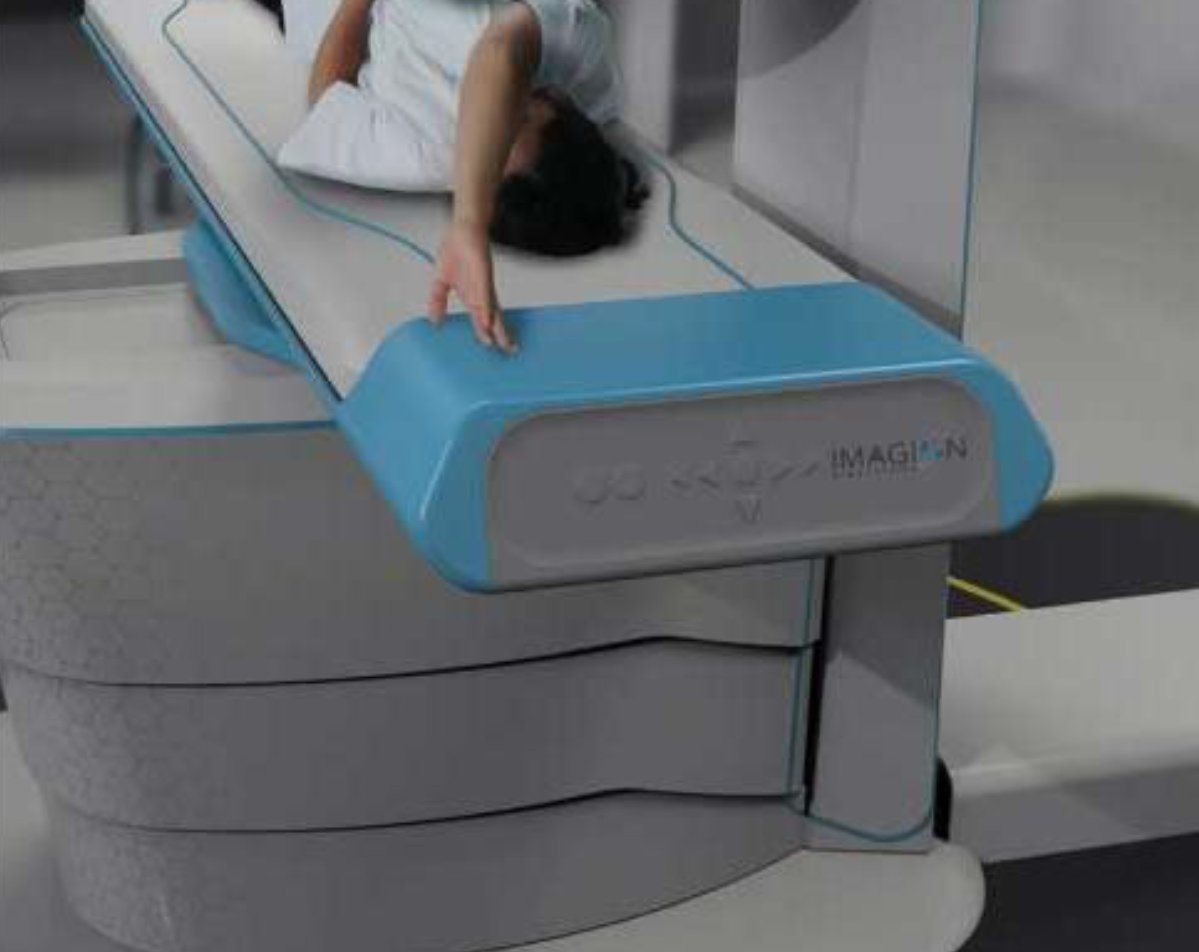COVID has already taken an exorbitant toll. But it’s far from done. Cancer patients will be the next target.
According to this New York Times report, from New Mexico to Minnesota to Florida, hospitals are intaking record numbers of COVID patients. As a new Omicron surge sweeps through almost all US hospitals, it is becoming increasingly difficult for people with other illnesses to get treatment. 24% US hospitals are reporting critical staffing shortages. According to a Center for Infectious Disease Research and Policy, as of January 10, 2022, 141,385 hospital beds were in use by COVID-19 patients. This, coupled with a majority of health workers calling in sick due to being infected themselves or due to burnout, the crisis is taking its toll on non-COVID patients, especially those with cancer.
Research suggests that over the next decade, there may be a stark increase in the number of people dying of breast or colorectal cancer due to the delay or the absence of routine screening exams because of COVID-19. Thousands of people are either deferring a visit a hospital or physicians or doctors are simply unable to give them the needed attention.
Cancer can be a tricky illness. Some forms of cancer progress slowly and some are really drastic. Since priority is being given to the COVID patients with respiratory failure, many hospitals are considering (or have already done so) cancelling elective surgeries. Elective surgeries are those surgeries that have been scheduled in advance and postponing them may not immediately threatened a patient’s life. But opinions differ. For example, this patient with a brain tumor lamented that if elective surgeries are canceled in his region, he may be unable to have his tumor removed within the next few months. This can have devastating consequences physically – and mentally.
The surgery of another cancer patient named April, in Saint Louis, has been postponed because of the sudden surge of Coronavirus-related patients (source). All elective surgeries have been rescheduled and postponed. April was diagnosed with appendix and colon cancer in December 2021. She was scheduled to have a colonoscopy and colon surgery two weeks later at Barnes-Jewish Hospital in St. Peters. Both procedures have now been postponed. Not wanting to leave his wife in the hands of fate, her husband, Scott Mueller, is taking her all the way to Rochester, MN, to get treatment at the Mayo Clinic.
Although there is less chance of cancer treatments being cancelled when the situation is dire, an increasing number of patients who otherwise would have been diagnosed, are postponing visiting hospitals either because most of the hospitals are short of staff, or they don’t want to expose themselves to COVID-19.
There has been a sudden decrease of 80% in the breast and colorectal screenings between March-May 2020 and in early 2021. Researchers have observed that there has been a dramatic decline in the screening of non-symptomatic patients, in some categories, even 90% decrease in screening visits. Instead of screening during the asymptomatic phase, many forms of cancers are being discovered when the patients visit the doctor already presenting with symptoms (source).
What precautions must the cancer patients take during COVID-19?
The problem with a late diagnosis is that the outcome might be worse and it may be difficult to treat the illness.
What should patients do? Anyone concerned about their health should continue to lobby their healthcare professionals until they receive attention. Patients need to be proactive about their own health yet respectful of the challenges faced by their healthcare team in these times of COVID. In some cases, oncology teams may agree to defer or delay treatment – but those decisions will be made on a case-by-case basis.
For example, if you have no family history of breast cancer and you are a healthy young woman, you can potentially defer your mammogram for a few months after a telehealth discussion with your physician. But if there is a painful breast lesion or if there is a new lump, or if there is pain in the breast region, immediate medical attention must not be deferred. Get an appointment.
Cancer isn’t as deadly as it used to be a few decades ago thanks to some incredible breakthroughs in treatment. The overall cancer death rate dropped by 32% from its peak in 1991 to 2019 (source) – from around 250 deaths for every 100,000 people to about 146. This means around 3.5 million deaths have been averted.
Nonetheless, the American Cancer Society projects that there it may be around 1.9 million new cancer diagnosis in 2022, resulting in 609,000 deaths in the United States. Who knows what the number will be given the interruptions by COVID?
Most cancers are treatable when they are diagnosed at an early stage. This early-stage diagnosis is being impacted by the COVID-19 crisis and both the patients and their physicians need to work together to ensure diagnosis as soon as possible, despite the challenges of COVID. As the pattern shows with one new variant after another, the ongoing pandemic isn’t going away anytime soon. We’ve all adjusted our lives to mask up, get vaccinated, socially distance and do other measures to protect ourselves from this wretched virus, but we can’t compromise our health when it comes to cancer: cancer doesn’t follow the rules.
According to this New York Times report, from New Mexico to Minnesota to Florida hospitals are getting record numbers of COVID patients. As a new Omicron search sweeps through almost all US hospitals, it is increasingly becoming difficult for people having other illnesses to get treatment. 24% US hospitals are reporting critical staffing shortage. According to a Center for Infectious Disease Research and Policy, as of January 10, 2022, 141,385 hospital beds were in use by COVID-19 patients. This, coupled with a majority of health workers calling in sick, the crisis is taking its toll on other non-COVID patients, especially, cancer patients.
Research has revealed that over the next decade, there may be a stark increase in the number of people dying of breast or colorectal cancer due to the delay or the absence of routine screening exams because of COVID-19. Thousands of people are either deferring a visit a hospital or physicians or doctors are simply unable to give them the needed attention.
Cancer can be a tricky illness. Some forms of cancer progress slowly and some are really drastic. Since priority is being given to the ever-rushing COVID patients, many hospitals are considering cancelling elective surgeries. Elective surgeries are those surgeries that have been scheduled in advance and postponing them may not immediately threatened a patient’s life. But opinions differ. For example, this patient with brain tumor says that there is a chance that if elective surgeries are cancelled, his brain surgery that is scheduled to take place within the next two months may also be cancelled.
The surgery of another cancer patient named April in Saint Louis has been postponed because of the sudden surge of Corona -related patients (source). All the elective surgeries have been rescheduled and postponed. April was diagnosed with appendix and colon cancer in December 2021. She was scheduled to have a colonoscopy and colon surgery in a couple of weeks in Barnes-Jewish Hospital in St. Peters. Both procedures have now been postponed. Not wanting to leave his wife in the hands of fate, the husband, Scott Mueller, is taking her all the way to Rochester, Minnesota, to get treatment at the Mayo Clinic.
Although there is less chance of cancer treatments being cancelled where there is a question of life and death, an increasing number of patients who otherwise would have gotten themselves diagnosed, are posting visiting hospitals either because most of the hospitals are short of staff, or they don’t want to expose themselves to COVID-19.There has been a sudden decrease of 80% in the breast and colorectal screenings between March-May 2020 and early 2021. Researchers have observed that there has been a dramatic decline in the screening of non-symptomatic patients, in some categories, even 90% decrease in screening visits. Instead of screening during the asymptomatic phase, many forms of cancers are being discovered when the patients visit the doctor with the symptoms of cancer (source).
What precautions must the cancer patients take during COVID-19?
The problem with late diagnosis is that if you don’t diagnose the cancer as early as possible and wait for a few months, the outcome might be worse and it may be difficult to treat the illness.
What should the patients or suspecting patients do? They should proactively find out whether aggressive treatment is needed through comprehensive chemotherapy or if it can be deferred for some time till the pandemic continues.
For example, if you have no family history of breast cancer and you are a healthy young woman you can potentially defer your mammogram for six months after discussing with your physician. But if there is a painful breast lesion or if there is a new lamp, or if there is pain in the breast region, immediate medical attention must not be deferred. The health staff is already taxed. The doctors and nurses are overworked. It is up to the patients to follow up with them and keep track of their health.
Cancer doesn’t remain as deadly as it used to be a few decades ago. The overall cancer death rate dropped by 32% from its peak in 1991 to 2019 (source) – from around 250 deaths for every 100,000 people to about 146. This means around 3.5 million deaths have been averted.
Nonetheless, the American Cancer Society projects that there it may be around 1.9 million new cancer diagnosis in 2022, resulting in 609,000 deaths in the United States.
Most of the cancers are treatable when they are diagnosed at an early stage. This early-stage diagnosis is being impacted by the COVID-19 crisis and both the patients and their physicians need to come up with the way to provide early diagnosis, and if possible, also early treatment even during the pandemic. As the pattern shows, the ongoing pandemic isn’t going anywhere near the future. We will need to learn to live with that and also learn to cope with other serious illnesses such as cancer.


